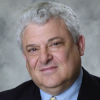Arthur Caplan

Arthur Caplan
Arthur L. Caplan, Ph.D., is the Drs. William F. and Virginia Connolly Mitty Professor of Bioethics at New York University's Langone Medical Center. He is the founding director of NYULMC's Division of Medical Ethics. According to Google Scholar, his published books and articles have resulted in an H-index of 47 and an I10-index of 87, since 2009...
fall kids doors
Renegade scientists and totalitarian loonies are not the folks most likely to abuse genetic engineering. You and I are-not because we are bad but because we want to do good. In a world dominated by competition, parents understandably want to give their kids every advantage. ... The most likely way for eugenics to enter into our lives is through the front door as nervous parents ... will fall over one another to be first to give Junior a better set of genes.
running cloning different
[Cloning] can't make you immortal because clearly the clone is a different person. If I take twins and shoot one of them, it will be faint consolation to the dead one that the other one is still running around, even though they are genetically identical. So the road to immortality is not through cloning.
use bombs tissues
The use of fetuses as organ and tissue donors is a ticking time bomb of bioethics.
suicide fate science
With terminal illness, your fate is sealed. Morally, we're more comfortable with a situation where you don't cause death, but you hasten it. We think that's a bright line. Comparing the U.S. with Switzerland, where assisted suicide is legal for patients suffering 'intolerable health problems.'
ethics number policy question seems vaccine
It seems to me the number one vaccine policy question has as much to do with ethics as science.
damaged tried
I think that may have damaged some of what he tried to accomplish.
carefully human hurting interests past research stick subjects sure welfare wound
Research in the past has wound up abusing, harming or hurting people. You want to stick to these regulations as carefully as possible, because they really make sure the welfare and interests of human subjects are protected.
starting sure threat
I'm sure there is no threat to anyone's identity. But we are starting down that road.
input
There isn't much input from the public. I think there should be.
baby school doctors
The time to talk about it [genetic engineering to improve a baby's genes] in schools and churches and magazines and debate societies is now. If you wait, five years from now the gene doctor will be hanging out the MAKE A SMARTER BABY sign down the street.
running jobs mean
People ask, 'Is the science going to run ahead of the ethics?' I don't think that's always the problem. I think it's that the science runs ahead of the politics. Bioethics can alert people to something coming down the road, but it doesn't mean policy and politicians are going to pay attention. They tend to respond when there's an immediate crisis. The job of the ethicist, in some ways, is to warn or be prophetic. You can yell loudly, but you can't necessarily get everybody to leave the cinema, so to speak.
money class people
There has never been just 'coach class' health care, but with these amenities you are seeing people get priorities according to your ability to pay. It's one thing to say you get perks; it's another to say you can buy your way to the head of the line.
decision challenges body
The challenge is for bioethicists to position themselves to be on panels, boards and other decision making bodies where oublic policy positions wil be established-where the exploding changes in health care that are now underway will be addressed.
children names public-health
Do good in the name of children. Do good in the name of public health.